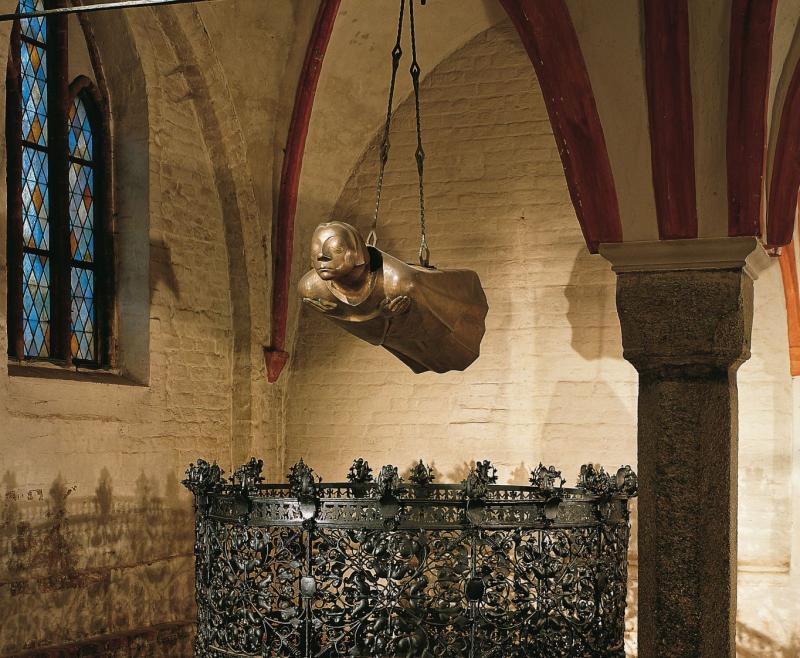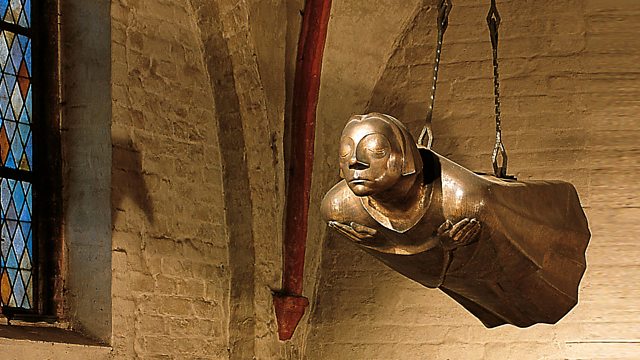March 7: Mourning Before Dancing
♫ Music:
Day 11 - Saturday, March 7
Rung #6: ON JOYFUL MOURNING & SORROW
Scriptures: Matthew 5:4; Psalm 30:10-12
Blessed [forgiven, refreshed by God’s grace] are those who mourn [over their sins and repent], for they will be comforted [when the burden of sin is lifted]. Hear, O Lord, and be gracious to me; O Lord, be my helper. You have turned for me my mourning into dancing; You have loosed my sackcloth and girded me with gladness, that my soul may sing praise to You and not be silent. O Lord my God, I will give thanks to You forever.
Poetry:
Strewn
by Barbara Crooker
It’d been a long winter, rags of snow hanging on; then, at the end
of April, an icy nor’easter, powerful as a hurricane. But now
I’ve landed on the coast of Maine, visiting a friend who lives
two blocks from the ocean, and I can’t believe my luck,
out this mild morning, race-walking along the strand.
Every dog within fifty miles is off-leash, running
for the sheer dopey joy of it. No one’s in the water,
but walkers and shellers leave their tracks on the hardpack.
The flat sand shines as if varnished in a painting. Underfoot,
strewn, are broken bits and pieces, deep indigo mussels, whorls
of whelk, chips of purple and white wampum, hinges of quahog,
fragments of sand dollars. Nothing whole, everything
broken, washed up here, stranded. The light pours down, a rinse
of lemon on a cold plate. All of us, broken, some way
or other. All of us dazzling in the brilliant slanting light.
MOURNING BEFORE DANCING
“You have turned for me my mourning into dancing.”
I want to dance. I want my life to be a joyful, musical romp. I want the laughter to spill all over the ground as the rhythm of the world keeps time. It is, after all, a glorious world! It is a glorious world, but the glory lies hidden as a treasure buried deep under the soil of sorrow. I don’t want the sorrow. I don’t want the sadness. I want to skip the mourning and go straight to dancing. Alas, the mourning, like the poor, will be with us always.
We are buried deep in sadness. I am tempted to say that we are broken, but that word implies that the cause for mourning is something that happened to us while we were minding our own business. We are broken, to be sure, but we break ourselves. It is our rebellion against our good Maker that breaks us. I am broken as I turn away to my own path. I rebel, and then I reject the results of my own rebellion. I break myself and then complain that I am broken
“You have loosed my sackcloth and girded me with gladness.”
Where does this sackcloth come from? Like my broken condition, it can come only from myself. It can come only when I stop trying to skip the sorrow to get to the dance. It comes when I face the sorrow of my own rebellion. I put on the sackcloth because I know something is wrong. What is wrong is me. I am the one who pushes hard against the gentle hand of God. Sackcloth is the garment of repentance. Like Job sitting in the ashes, I face my true reality before God. On my own, I am destined for ashes. I am the one who throws off the beautiful presence of God.
Mourning is painful. I try to shake off the ashes and loosen my sackcloth myself. I want to wear different garments. Clothes of dancing, not mourning. But, I am not the one to loosen the garments of repentance. Only God can rightly take these off and replace them with the clothes fit for the banquet. He has removed the clothes of my rightful shame and girded me with his gracious gladness. He has done it!
Sackcloth before gladness.
Mourning before dancing.
Now we dance! We join the line of all the redeemed, stretching back to the beginning, in the everlasting dance and we hear the music. We begin to move….
Dancing comes, but only after the mourning.
Prayer:
“Lord, I come to you even though I am the one who pushes you away. I have rebelled and I still rebel. Thus, I come to you in sackcloth. Thank you for your forgiveness and redemption; that you have loosed my sackcloth and girded me with gladness. You bring me to mourning but replace my mourning with dancing. Amen and Amen!”
Greg Ganssle
Professor of Philosophy
Talbot School of Theology
Biola University
For more information about the artwork, music, poetry, and devotional writer selected for this day, we have provided resources under the “About” tab located next to the “Devotional” tab.
About the Art:
Der Schwebende (“The Hovering/Floating One”)
Ernst Barlach
1927, cast 1987
Length: 217cm
Güstrow Cathedral
Güstrow, Germany
Güstrow, also known as Barlachstadt , was the hometown of Ernst Barlach, a German expressionist sculptor whose most important work is his floating, bronze figure (Der Schwebende) made in 1926 to commemorate the victims of the First World War. Barlach himself fought in this war and returned a pacifist. Barlach’s memorial is unusual and unique. Detached from earth and time, with folded arms and closed eyes, the hovering figure expresses an internalized vision of the grief and sufferings of war. When the Nazis came to power in the 1930s, Barlach’s works were among the first to be declared Entartete Kunst (‘degenerate art’) and were confiscated and removed from public display. Sadly, Barlach died in 1938, knowing that his masterwork had been taken down to be melted and probably made into war munitions. However, some courageous friends managed to hide a second cast, which was hung in the Antoniter Church in Cologne after the end of the Second World War. https://blog.britishmuseum.org/barlachs-hovering-angel-travels-to-london/
About the Artist:
Ernst Barlach (1870-1938) was a German expressionist sculptor, printmaker, and writer. Famed for his sculptures of religious and mystical figures influenced by Gothic wood carvings, and for his depictions of bulky peasant figures, he used emphatic gestures and angular poses to convey emotion and movement. Although he was a supporter of the war in the years leading to World War I, his participation in the war made him change his position, and he became known for his sculptures protesting against the war. This created many conflicts during the rise of the Nazi Party, when most of his works were confiscated as Degenerate Art. The Nazis removed 381 of his works from museums and churches, destroying some. Additionally he was barred from exhibiting and staging his plays.
https://en.wikipedia.org/wiki/Ernst_Barlach
http://www.artnet.com/artists/ernst-barlach/
About the Music:
“Psalm 30” from the album Psalm Songs, Volume I
The Lyrics:
I will extol you, O Lord, for you have drawn me up
And have not let my foes rejoice over me.
O Lord my God, I cried to you for help,
And you have healed me.
O Lord, you have brought up my soul from Sheol;
You restored me to life from among those who go down to the pit.
Sing praises to the Lord, O you his saints,
And give thanks to his holy name.
For his anger is but for a moment,
And his favor is for a lifetime.
Weeping may tarry for the night,
But joy comes with the morning.
As for me, I said in my prosperity,
"I shall never be moved."
By your favor, O Lord,
You made my mountain stand strong;
You hid your face;
I was dismayed.
To you, O Lord, I cry,
And to the Lord I plead for mercy:
"What profit is there in my death,
If I go down to the pit?
Will the dust praise you?
Will it tell of your faithfulness?
Hear, O Lord, and be merciful to me!
O Lord, be my helper!"
You have turned for me my mourning into dancing;
You have loosed my sackcloth
And clothed me with gladness,
That my glory may sing your praise.
You have turned for me my mourning into dancing;
You have loosed my sackcloth
And clothed me with gladness,
That my glory may sing your praise (and not be silent.)
O Lord my God, I will give thanks
(O Lord my God, I will give thanks)
To you forever!
About the Composer/Lyricist/Performer:
Adam Wright’s life-long pursuit is setting Scripture to music and providing a resource to help God’s people engage with the Bible more deeply. Adam began this process as music minister for Cahaba Park Church by writing Psalms to music for a summer sermon series. Almost six years later, he's written and recorded over 25 songs straight from the pages of Scripture under the moniker, The Corner Room. As each passage has a different character and intent, each song he writes takes on a unique style, drawing from his deep love of acoustic music. A singer/songwriter at heart, Adam enjoys arranging each passage into an accessible work that makes memorization and meditation easy. “These songs are a treasure to me,” says Wright, “They've not only impacted my family, my church, and my community, but have made a lasting impact on my own personal love and understanding of Scripture. I look forward to where the Lord leads from here.”
cornerroommusic.com
About the Poet:
Barbara Crooker (b. 1945) is the author of eight books of poetry, including Les Fauves and The Book of Kells. Her first book, Radiance, won the 2005 Word Press First Book Award and was a finalist for the 2006 Paterson Poetry Prize and Line Dance, her second book, won the 2009 Paterson Award for Excellence in Literature. Crooker is a poetry editor for Italian Americana and has received a number of awards, including the WB Yeats Society of New York Award, the Thomas Merton Poetry of the Sacred Award, and three Pennsylvania Council on the Arts Creative Writing Fellowships. Her work has appeared in numerous journals and anthologies.
https://www.barbaracrooker.com/
https://books.google.com/books/about/Some_Glad_Morning.html?id=btdxwgEACAAJ&source=kp_author_description
About the Devotion Writer:
Dr. Greg E. Ganssle
Professor of Philosophy
Talbot School of Theology
Biola University
Gregory Ganssle is a professor of philosophy at the Talbot School of Theology, Biola University. He works in philosophy of religion and the history of philosophy. His latest book is Our Deepest Desires: How the Christian Story Fulfills Human Aspiration (IVP, 2017).

